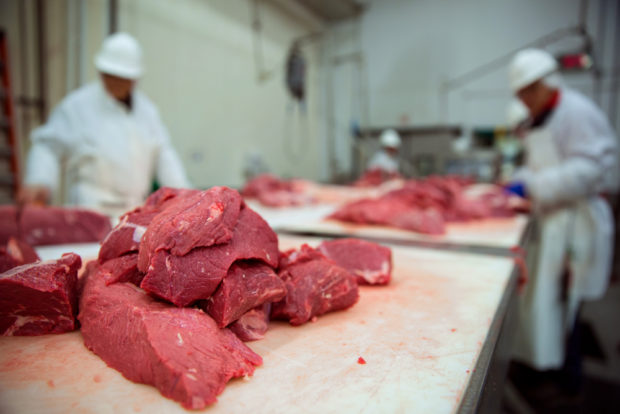Food safety is a cornerstone of success for any restaurant or commercial kitchen. Maintaining high standards of cleanliness and hygiene not only protects customers but also builds a strong reputation for your establishment. By following best practices, implementing effective training, and understanding how to prevent foodborne illness, you can ensure your kitchen operates safely and efficiently. Let’s dive into essential food safety tips for restaurants.
Why Food Safety Matters in Commercial Kitchens
Food safety is not just about complying with regulations—it’s about protecting the health of your customers and employees. A single incident of foodborne illness can tarnish your brand’s reputation, lead to costly legal issues, and potentially cause harm to your patrons. Statistics show that foodborne illnesses affect millions of people annually, making it crucial for restaurant owners and staff to prioritize safety.
Key Risks of Foodborne Illness in Restaurants
Understanding how foodborne illnesses occur is the first step to prevention. Common causes include:
- Cross-Contamination: Bacteria from raw foods spreading to ready-to-eat items.
- Improper Cooking: Failing to cook food to the recommended temperature.
- Inadequate Storage: Allowing perishable items to sit in the temperature danger zone (40°F–140°F).
- Poor Personal Hygiene: Employees not washing hands or handling food properly.
Food Safety Training: The Foundation of Prevention
Investing in food safety training is essential for all restaurant staff. Proper training ensures that employees understand safety protocols and can implement them effectively.
Essential Training Components
- Hygiene Practices: Teach proper handwashing, glove use, and uniform cleanliness.
- Temperature Control: Train staff to use food thermometers and monitor storage units.
- Cleaning Protocols: Explain how to sanitize surfaces, utensils, and equipment.
- Allergen Awareness: Educate on how to prevent cross-contact and cater to dietary restrictions.
Best Practices to Maintain Food Safety in Commercial Kitchens
Here are practical, actionable food safety tips for restaurants that will keep your operations safe and compliant:
1. Implement a Cleaning Schedule
Keeping a commercial kitchen spotless is non-negotiable. Develop a cleaning schedule that includes:
- Daily tasks: Sanitizing surfaces, cleaning utensils, and emptying trash bins.
- Weekly tasks: Deep cleaning ovens, fridges, and other equipment.
- Monthly tasks: Checking for pests and addressing maintenance issues.
2. Focus on Personal Hygiene
Employees are the first line of defense against contamination. Enforce strict personal hygiene policies:
- Ensure handwashing with soap for at least 20 seconds before handling food.
- Provide hairnets, gloves, and clean uniforms.
- Restrict employees with symptoms of illness from food preparation areas.
3. Monitor Food Temperatures
Temperature control is critical in how to prevent foodborne illness. Use thermometers to check:
- Hot foods: Keep at 140°F or above.
- Cold foods: Store at 40°F or below.
- Frozen items: Maintain at 0°F.
Regularly inspect and calibrate thermometers to ensure accuracy.
4. Prevent Cross-Contamination
Preventing cross-contamination requires vigilance:
- Store raw meats, seafood, and poultry separately from ready-to-eat foods.
- Use color-coded cutting boards and utensils for different food types.
- Sanitize surfaces and equipment after preparing raw foods.
Proper Food Storage: An Essential Safety Practice
Storing food correctly is one of the easiest ways to avoid foodborne illness. Here’s how to do it right:
FIFO Method: First In, First Out
Rotate inventory so older items are used before newer ones. This minimizes waste and ensures food stays fresh.
Label and Date Everything
Clearly mark all stored food with labels indicating the name and expiration date. This practice helps prevent the accidental use of spoiled ingredients.
Organize the Refrigerator
- Top shelves: Ready-to-eat foods.
- Middle shelves: Dairy and cooked items.
- Bottom shelves: Raw meat and poultry (to avoid dripping onto other foods).
Effective Food Safety Equipment and Tools
Investing in the right tools enhances your ability to maintain food safety standards.
Must-Have Equipment
- Food Thermometers: For accurate temperature readings.
- Sanitizers: Approved cleaning agents for surfaces and equipment.
- Storage Containers: Airtight, food-grade containers to keep items fresh.
- Pest Control Measures: Traps and deterrents to prevent infestations.
The Role of Inspections and Audits
Regular inspections are a vital part of any food safety program. Internal audits can help identify and address risks before official health inspections occur.
Conduct Routine Inspections
- Check for cleanliness in all areas, including hard-to-reach spots.
- Ensure staff follow safety protocols.
- Verify that all equipment is functioning properly.
Prepare for Health Inspections
- Maintain accurate records of cleaning schedules, training, and restaurant equipment maintenance.
- Address any feedback from previous inspections promptly.
Handling Foodborne Illness Complaints
Even with strict protocols, mistakes can happen. Knowing how to respond to a foodborne illness complaint is critical:
- Take Complaints Seriously: Listen to the customer and gather details about their symptoms and dining experience.
- Investigate Immediately: Review kitchen practices, staff actions, and food handling procedures.
- Notify Authorities if Needed: Contact local health departments for guidance if an outbreak is suspected.
The Business Benefits of Food Safety Excellence
Prioritizing food safety is not just about avoiding fines; it’s also a smart business strategy.
Build Customer Trust
Customers are more likely to return to a restaurant where they feel safe. Highlighting your commitment to food safety can serve as a unique selling point.
Reduce Costs
By minimizing waste, avoiding lawsuits, and passing inspections, you can save significant money in the long run.
Boost Employee Morale
A safe and organized kitchen environment fosters teamwork and reduces stress for employees.
Food Safety as a Continuous Commitment
Food safety is an ongoing process that requires vigilance, training, and dedication. By following these best practices, you can protect your customers, employees, and business reputation. Remember, the key to success lies in understanding how to prevent foodborne illness and implementing food safety tips for restaurants consistently. Invest in food safety training, adhere to regulations, and stay proactive to ensure your commercial kitchen is always a safe place to dine.
By embracing food safety as a priority, your restaurant can stand out in a competitive industry while safeguarding the health and satisfaction of your patrons.
Need Commercial Appliance Repair in Wilmington, DE?
Since 1984, Commercial Equipment Service Inc. has been providing service and sales of commercial/restaurant cooling, refrigeration and heating equipment to Wilmington, Delaware and the surrounding area. We are a locally owned business with over 42 years of experience. Our friendly staff prides itself on our professional attitude and service. Commercial Equipment Service Inc. is a 24/7 on-call service for your appliance needs! We install and repair all refrigeration and cooking equipment, heating and air conditioning, emergency generator sales, kitchen exhaust systems, beverage systems and so much more. Contact us today to learn more about what we can do for you!

